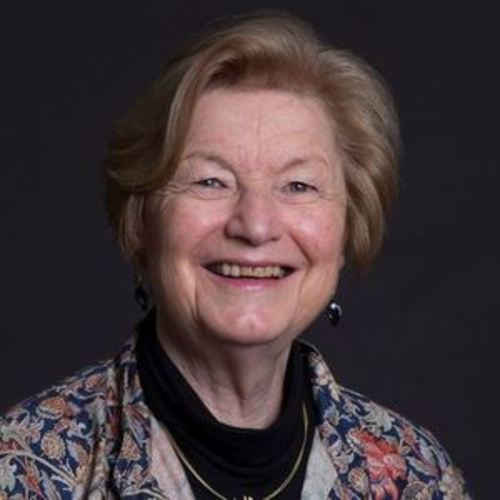EVENTS
Working with the Empty Chairs in Supervision Processes : Revealing Chairs, Empathy Circle Technique, and Other Action Methods to Facilitate Group Supervision

DATES:
Wednesday, November 20, 2024
TIME:
11:30 AM - 02:30 PM Central Daylight Time (US and Canada)
05:30 PM - 08:30 PM Central Time (Europe)
Location:
Tele'Drama Virtual Center / Zoom Meetings DURATION: 3-Hour LANGUAGE: English/French; Captions: Arabic, Bengali, Chinese, Czech, Dutch, Estonian, Farsi/Persian; Finnish, French, German, Hebrew, Hindi, Norwegian, Hungarian, Italian, Japanese, Korean, Polish, Portuguese, Romanian, Russian, Swedish, Tamil, Turkish, Ukrainian, COST: Professionals & General Public: $80
Students & Retirees: $60
Please note that registrations will close six (6) hours prior to the start of the session.
Payment, in case of cancellation, will be credited to future workshops.
PRESENTER(S): Chantal Nève-Hanquet
Agathe Crespel
05:30 PM - 08:30 PM Central Time (Europe)
Location:
Tele'Drama Virtual Center / Zoom Meetings DURATION: 3-Hour LANGUAGE: English/French; Captions: Arabic, Bengali, Chinese, Czech, Dutch, Estonian, Farsi/Persian; Finnish, French, German, Hebrew, Hindi, Norwegian, Hungarian, Italian, Japanese, Korean, Polish, Portuguese, Romanian, Russian, Swedish, Tamil, Turkish, Ukrainian, COST: Professionals & General Public: $80
Students & Retirees: $60
Please note that registrations will close six (6) hours prior to the start of the session.
Payment, in case of cancellation, will be credited to future workshops.
PRESENTER(S): Chantal Nève-Hanquet
Agathe Crespel
Working with the empty chairs in supervision, training and coaching processes:
Revealing chairs, empathy circle technique, and other action methods to facilitate many kinds of groups as working teams and communities.
November 20th 2024
These action methods allow people to find themselves answers to their own questions, to deal with differences and conflictual context, to be surprised by new ways of seeing the same situation, and to broaden the field of possibilities.
Objective
- To experiment how action methods can open groups and individuals to new ways of thinking in supervision, training and coaching.
- To discover or practice the use of empathy circle and the relevant chairs
Method
In a security frame, the methodology includes 4 steps :
- Experimentation
- Sharing
- Explanations, transmission of concept and techniques
- Transfer to professional practice
Chantal Nève-Hanquet and Agathe Crespel are autors of “Facilitating Collective Intelligence, a Handbook for Trainers, Coaches, Consultants and Leaders” (Routledge 2019). The authors, both members of the Centre for psychosociological training and intervention (CFIP), Belgium, have, through numerous congresses and workshops, extended their practice to Italy, France, Bulgaria, Greece, Switzerland, Sweden and California. Forword by Daniela Simmons.
"If you want to obtain unprecedented results, try using unprecedented methods". Peter Senge
Support and material for the course : “The trainers are the authors of the book Facilitating Collective Intelligence (Routledge 2019 for the English version or Eyrolles 2018 for the French version) which is the theoretical and methodological support for the training. We suggest students to get it in advance so they can immediately articulate each session with the part of the book mentioned by the trainers.”
Appropriate for:
Coaches, coach supervisors and consultants, counselors, consultant, coaching psychologists and other professionals who work with groups, as well as students and academics of coaching and coaching psychology. Psychodramatist wanting to use action methods in supervision context.
Arc Facilitation
Center for Training and Psychosociology, in Belgium CFIP
Chantal Linkedin
Agathe Linkedin
For partial scholarship opportunities contact zoomroom.international@teledrama.org
or submit here
OTHER EVENTS IN Workshops

e-Psychodrama International Personal Growth Circle: Online Group for Exploring and Healing Relationships
JAN 21, 2026 • FEB 18, 2026 • MARCH 18, 2026 • APRIL 15, 2026 • MAY 20, 2026
2-HOUR, ATTEND ALL OR ANY
Presenters: Daniela Simmons, PhD, TEP
Information & Registration
Frames of the Soul: Exploring Film Through Psychodrama
FEBRUARY 25TH, MARCH 25TH, APRIL 29TH, MAY 27TH, JUNE 24TH, 2026
2-HOUR SESSIONS, ATTEND ALL OR ANY; LAST WEDNESDAYS OF EACH MONTH
Presenters: Daniela Simmons, PhD, TEP, Mark Wentworth
Information & Registration
ACTING THE UNCONSCIOUS: DREAM WORK THROUGH PSYCHODRAMA
FRIDAY, FEBRUARY 27, 2026
2-HOUR
Presenters: Daniela Simmons, PhD, TEP
Information & Registration
ETHICALLY GROUNDED EXPERIENTIAL TREATMENTS FOR TRAUMA AND ADDICTION
SATURDAY, FEBRUARY 28, 2026
2-HOUR
Presenters: Adena Hope Bank, LCSW, CP
Information & Registration
EMBODYING WISDOM FIGURES IN INDIVIDUAL AND GROUP WORK
SUNDAY, MARCH 1, 2026
3.5-HOUR SESSION
Presenters: Rebecca Walters, MS, TEP
Information & Registration
EXTERNALIZING THE INTERNAL – SOCIAL IDENTITIES AND COGNITIVE PROCESSING THROUGH ACTION
SATURDAY, MARCH 7, 2026
2-HOUR
Presenters: Nancy S. Scherlong
Information & Registration
Culture Change in Long-Term Institutional Settings: Systemic Transformation, Social Inquiry, and Experiential Practice | A Didactic and Experiential Educational Series
WEDNESDAY, MARCH 11, 2026
A TWO-HOUR EDUCATIONAL FUNDRAISING WORKSHOP
Presenters: Daniela Simmons, PhD, TEP, Stan Ingman, PhD
Information & Registration
BREAKING THE CYCLE UNDERSTANDING, PREVENTING, AND TRANSFORMING ADULT BULLYING; A Psychodramatic Exploration of Personal, Professional, and Collective Trauma Related to Bullying
SATURDAY, MARCH 14, 2026
2-HOUR (ONLINE)
Presenters: Daniela Simmons, PhD, TEP
Information & Registration
INNOCENCE AGAIN: REAWAKENING THE INNER CHILD THROUGH PSYCHODRAMA
SATURDAY, MARCH 21, 2026
2-HOUR
Presenters: Phil Armour
Information & Registration
BURNOUT RECOVERY & ROLE RECLAIMING THROUGH PSYCHODRAMA: Experiential Workshop
SUNDAY, MARCH 22, 2026
2 HOURS
Presenters: Daniela Simmons, PhD, TEP
Information & Registration
BRIDGING GAPS AND REACHING OUT
SATURDAY, MARCH 28, 2026
2-HOUR
Presenters: Erica Hollander, JD, PhD, TEP, Amna Jaffer, Ed.D, TEP
Information & Registration
SEASONAL SPOONS: ENERGY & FOUNDATIONS OF SELF-COMPASSION; 4-Session Experiential Series
ATTEND ALL OR ANY: TUESDAYS, JAN 13, APR 14, JUN 30, SEP 22, 2026
ONE SESSION PER SEASON • 2-HOUR EACH
Presenters: Pembegül İlter, Colleen Baratka, MA, TEP
Information & Registration
SOCIODRAMA AND STORY WITH CHILDREN’S GROUPS: ENACTING FAIRYTALES AND FOLKTALES
SUNDAY, APRIL 26, 2026
3.5-HOUR SESSION
Presenters: Rebecca Walters, MS, TEP
Information & Registration
Workshops Offered by Tele'Drama Practitioners & Trainers
VARIOUS DATES AVAILABLE
90 MIN | 3 HOURS

